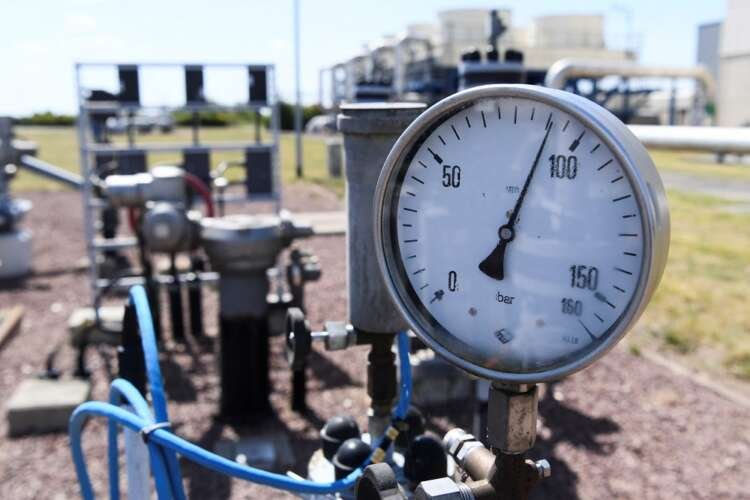Europe props up energy firms amid liquidity crunch
Published by Jessica Weisman-Pitts
Posted on September 13, 2022
4 min readLast updated: February 4, 2026

Published by Jessica Weisman-Pitts
Posted on September 13, 2022
4 min readLast updated: February 4, 2026

FRANKFURT/OSLO (Reuters) – More European energy companies have secured extra funds from governments and banks as soaring gas and power prices following Russia’s invasion of Ukraine have driven up margin call requirements and burnt up their cash.
FRANKFURT/OSLO (Reuters) – More European energy companies have secured extra funds from governments and banks as soaring gas and power prices following Russia’s invasion of Ukraine have driven up margin call requirements and burnt up their cash.
Several European governments had already announced measures to provide loans and guarantees to cash-strapped companies, before the European Union on Friday tasked Brussels with drafting proposals within a few days to cap revenue of non-gas energy producers and help power firms stay afloat.
Utilities often sell power in advance but must maintain a “minimum margin” deposit in case of default before supplying the power. This deposit has raced higher with surging power prices, leaving companies struggling to find cash, given many firms face limits on the extent extra costs can be passed to clients.
Here is a chronology of names and numbers:
Sept 9 – VNG, one of Germany’s biggest importers of Russian gas and part of EnBW, asked the government for aid to keep going and absorb accumulating losses.
Sept 8 – The Danish government said it planned to provide 100 billion Danish crowns ($13.6 billion) in guarantees to energy firms.
Sept 8 – British Prime Minister Liz Truss said a 40 billion pound ($46.5 billion) scheme will be launched to ensure energy firms are shielded from liquidity squeezes.
Sept 6 – Norway’s Equinor said in Europe, excluding Britain, total margin calls probably amounted to more than 1.5 trillion euros ($1.51 trillion).
Sept 6 – Switzerland rushed out a financial safety net for power company Axpo, having readied provisions in April for the purpose. The measures in theory extend to sector peers Alpiq and BKW.
Sept 6 – Finland’s Fortum signed a bridge financing arrangement with government investment company Solidium for 2.35 billion euros ($2.39 billion) to cover collateral needs.
Sept 5 – Britain’s largest energy supplier Centrica Plc is in talks with banks to secure billions of pounds in extra credit to meet soaring collateral demands, the Financial Times reported.
Sept 4 – Finland and Sweden pledged to offer 10 billion euros and 250 billion Swedish crowns ($23.7 billion), respectively, in liquidity guarantees to power companies.
Sept 4 – Czech Industry Minister Jozef Sikela said he had approved applications from Czech investment group EPH and Sev.en Energy for loans to help cover margin requirements.
Sept 1 – Poland’s PGNiG can tap up to 55 billion zloty ($11.7 billion) of Polish state guarantees to secure financing for liquidity. So far, the gas company has drawn 10 billion zloty to secure two loans of 4.8 billion zloty each from state-controlled banks.
The government has also created a 10 billion zloty fund earmarked for PGNiG to compensate for the difference between gas prices on the market and those the company charges to household customers – which are regulated and have been frozen by the government this year to protect retail buyers.
Aug 31 – Austria’s government granted a 2 billion euro credit line to the City of Vienna to help the Wien Energie power company with futures margins.
Aug 29 – Fortum said it was in talks with the Finnish state on how to secure its liquidity needs.
Aug 29 – Germany’s Uniper requested more financial help from the German government, raising the bill for bailing out the utility to 19 billion euros.
Aug 11 – RWE said it is considering bearing its own losses and not reverting to Germany’s provisions to help operators with a gas levy charged to all consumers. It has three syndicated loans totalling 8 billion euros to secure forward transactions.
July 8 – State-controlled Czech firm CEZ said the Prague government will help it finance electricity and gas trade before the peak demand winter season via a credit agreement worth up to 3 billion euros.
($1 = 7.3625 Danish crowns)
($1 = 0.8597 pounds)
($1 = 10.5333 Swedish crowns)
($1 = 0.9827 euros)
(Reporting by Vera Eckert and Nora Buli; additional reporting by Jason Hovet, Marek Strzelecki, Editing by Edmund Blair, Kirsten Donovan and Louise Heavens)
Liquidity refers to how easily assets can be converted into cash without affecting their market price. In finance, it is crucial for businesses to meet short-term obligations.
A margin call occurs when an investor's account falls below the required minimum value, prompting them to deposit more funds or sell assets to cover the shortfall.
Explore more articles in the Investing category











